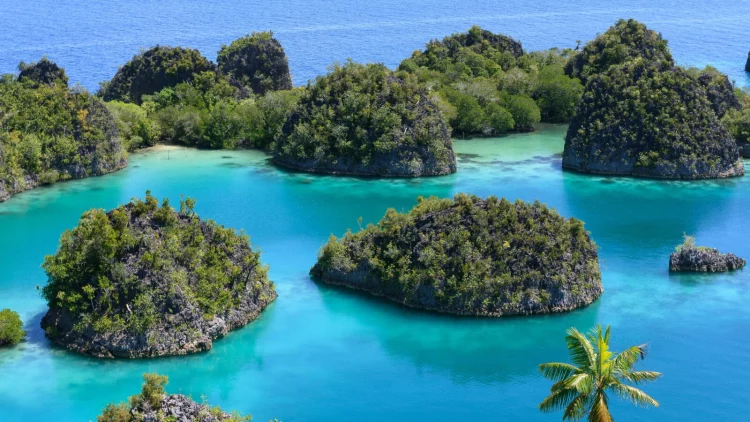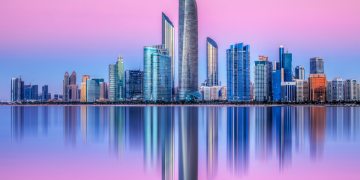The Allure of Seclusion and Sustainability
In 2025, Indonesia’s remote islands have become the crown jewels of global luxury travel. But not for the reasons one might expect. Unlike the flashy resorts of Dubai or the celebrity hideaways in the Caribbean, the new wave of Indonesian retreats offers something subtler: seclusion with purpose, indulgence with restraint, and meals that taste like stories passed down generations. Travelers seeking authenticity and escape have begun flocking to far-flung islets off Flores, Raja Ampat, and the Maluku Islands—not just for turquoise waters, but for soulful experiences curated around land, sea, and cuisine.
This movement is rooted in the transformation of a specific kind of travel appetite. In 2025, more high-end tourists are no longer satisfied with standard five-star comfort. Instead, they crave something harder to manufacture: emotional memory. That’s exactly what these remote island retreats are offering. These aren’t just vacations; they are immersive sanctuaries that align with Gen Z and millennial values—ecological sustainability, local cultural integrity, and meaningful culinary connection.
Flores and Raja Ampat: Indonesia’s Island Renaissance
Flores and Raja Ampat, long admired for their coral reefs and biodiversity, have recently seen a rise in private eco-resorts that blend luxury with localism. Resorts like Seraya Escape and Pulau Ayu Haven now occupy entire small islands, offering no more than 10 villas per location to preserve ecological balance. Bookings for these properties surged 47% year-over-year, according to Indonesia’s Ministry of Tourism, largely driven by international travelers from Europe, Australia, and the U.S.
Part of the appeal is exclusivity—no crowds, no cars, just sea breezes and sunsets. But unlike traditional luxury enclaves, these places are deeply integrated into their environment. Solar panels, desalination systems, and bamboo architecture are the norm. Guests are encouraged to participate in reef restoration workshops, harvest herbs with local chefs, or kayak to nearby fishing villages for cooking classes with community elders. The architecture, interiors, and experiences are not imported concepts—they emerge organically from the land and culture.
Raja Ampat, especially, has become the benchmark of mindful luxury. Located in West Papua, its untouched marine ecosystem is among the richest in the world. Resorts like Misool Eco Lodge limit their guest capacity and operate entirely on renewable energy. Instead of offering champagne brunches, they host reef biology sessions and serve breakfast sourced from nearby permaculture gardens.
Farm-to-Table, the Indonesian Way
What truly distinguishes these island retreats in 2025 is their reimagined culinary identity. Rather than haute cuisine in the European sense, many island chefs now embrace a distinctly Indonesian philosophy: “from sea to smoke, from land to leaf.” Meals are more than sustenance—they are theater, memory, and ancestry combined.
At resorts off Flores, guests enjoy six-course tasting menus that include wild turmeric coconut soup, smoked barramundi wrapped in banana leaves, and cassava panna cotta topped with tamarillo reduction. Each dish tells a regional story. The peppercorns are harvested from nearby hills, the salt sun-dried by local women’s collectives, and the seafood sourced by sustainable spearfishing in accordance with lunar tides. Menus shift weekly, depending on the harvest, fishing season, and chef creativity.
One standout example is the dining experience at Laut Rempah, a resort restaurant on a private island east of Komodo. There, the chef invites guests to walk through the garden each morning, plucking herbs and roots that will later infuse their meals. In the evening, dishes are presented alongside oral histories: how nutmeg was once traded by sultans, or how sago served as the survival grain during monsoon famine years.
Foodies and culinary journalists have taken note. In 2025, Indonesian island kitchens began earning international acclaim. A feature in Gourmet Nomad called Flores “the next frontier in post-tourism gastronomy,” while Condé Nast Traveler ranked Raja Ampat’s eco-resort dining among the world’s “Top 5 Conscious Culinary Destinations.”
Culinary Storytelling and the Appeal of Intentional Eating
The rise of these retreats coincides with a broader cultural shift in how travelers relate to food. In a world increasingly shaped by fast information and algorithmic suggestion, meals that engage the senses and the spirit are seen as restorative. In Indonesia’s islands, food becomes a form of narrative—layered with indigenous knowledge, family memory, and ecological awareness.
Guests are often surprised by the elegance of simplicity. A lunch of grilled banana heart with wild lime dressing can leave more of an impression than imported foie gras. The setting helps—open-air kitchens facing lagoons, beachside mats under starlight, or cliffside jungle decks that echo with birdcalls. But it’s the intentionality that stands out. Here, nothing is rushed. Fermentation takes weeks. Banana stem broth simmers all day. Even the plating—often on handwoven palm plates or carved coconut shells—tells a story.
This emphasis on “culinary mindfulness” aligns with global wellness trends. Many retreats now include programs like food meditation, where guests prepare and eat meals silently, focusing on texture, scent, and source. Others offer fasting with nutritional guidance, followed by feasting rituals rooted in ancient harvest festivals.

Exclusivity Meets Ecological Responsibility
As these retreats gain international prestige, the question arises: can they scale without losing their soul? For now, many operators are resisting the urge to expand. Instead, they’re refining. New properties are capped in size, and many require guests to stay a minimum of five nights—to encourage slow travel rather than consumption-based hopping.
Eco-certifications have also become more rigorous. In 2025, a new sustainability benchmark called “Rantai Biru” (Blue Chain) was introduced by Indonesia’s tourism ministry, specifically for marine eco-resorts. To qualify, properties must prove regenerative marine practices, community employment standards, and waste minimization systems. The first batch of 12 certified resorts included several new island projects in Halmahera and Seram.
This commitment to ecological responsibility resonates with Gen Z and Millennial travelers, who have grown wary of greenwashing. Transparency matters. One luxury booking platform now includes carbon offset ratings and lists the number of community members employed per guest. Guests don’t just want to relax—they want to know that their presence uplifts rather than depletes.
The Next Evolution: Cultural Deep Dives and Gastronomic Residencies
Looking ahead, many of Indonesia’s remote retreats are evolving into something even more intimate: spaces for learning and collaboration. In 2025, several islands began hosting chef residencies and cultural exchanges. Indonesian chefs returning from abroad are working with local cooks to document endangered recipes. Artists are collaborating with indigenous craftspeople to design foodware that reflects ancestral cosmologies.
One notable program is the “Laut dan Lidah” (Sea and Tongue) residency on an island off Sulawesi, where young chefs live with coastal communities and learn to cook using only pre-electric techniques. The results are documented in a digital archive that now spans over 100 micro-regional dishes—from smoked anchovy paste to fermented jackfruit curry.
For travelers, these programs offer access to an experience far beyond typical vacationing. You don’t just eat—you belong, even if briefly, to a system of care, history, and culinary identity that predates tourism.
Final Thoughts: Why These Retreats Resonate Now
The rise of remote island retreats in Indonesia in 2025 marks more than a travel trend—it reflects a growing yearning for depth in a world of surface distractions. Travelers want their getaways to be both restorative and responsible. They want luxury that respects nature, food that respects culture, and experiences that resonate long after the trip ends.
Indonesia’s remote islands, with their fusion of ecological reverence and culinary richness, offer all this and more. As the world redefines what it means to travel well, these retreats offer a compelling answer: travel not to escape the world, but to better understand your place within it.





















